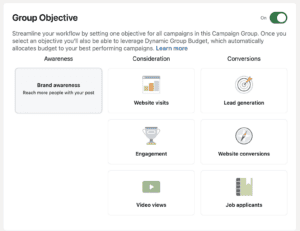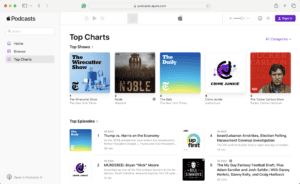Podcast reviews are genuine opinions from past listeners. New listeners rely on them to decide whether your show is worth their time.
They give your podcast social proof and credibility, so new listeners don’t have to take your word that your podcast is great— they have other listeners vouching for it.
However, with the Apple Podcast algorithm recently deprioritizing podcast reviews as a ranking factor, are they still as valuable today? Let’s find out.
Are Podcast Reviews Still Important?
Convenience is podcasting’s biggest unique selling point. Anyone with a story to share or information to impart can easily put a podcast out into the world. This also means there are a lot of shows out there—over 2,000,000, to be exact—which makes finding your next favorite podcast slightly difficult.
Podcast reviews come in handy during these situations. They give new listeners a basic idea about the show before they invest their time into something new.
Imagine you want to try out a new restaurant. What do you do? You’ll obviously Google it to find out what past customers have to say about the restaurant. Maybe even ask your friends and family about their experiences. The thought process is the same behind podcast reviews.
But then Tanner Campbell, a podcaster and small business owner, raised some interesting points that got us thinking about whether reviews and ratings are actually necessary. His article, The Case for Evolving Reviews in Apple Podcasts, raises three main concerns:
- There’s no proof that positive reviews help grow your podcast audience.
- Negative reviews can hurt audience growth.
- Most listeners don’t like podcasters constantly asking for reviews and ratings.
Campbell isn’t wrong! Every point above is correct. A single negative review can negate several 5-star ratings, and the fact that people are more than ready to leave a scathing review makes matters worse.
Think about it: Haven’t you found yourself constantly scrolling below to find that one bad review despite seeing a plethora of 5-star reviews?
Plus, not every review carries value. A vague “Good job!” or “Nice podcast” doesn’t do much for your growth.
So does that mean podcast reviews are unnecessary?
Absolutely not! Genuine podcast reviews can help your podcast grow in the long run, irrespective of the platform you use. Take this glowing review, for example.
New listeners will still go through podcast reviews before they hit “Play.” Podcasters will still use it for feedback to learn what they are doing right or wrong.
To summarize, you need podcast reviews for three main reasons:
- Establishing your podcast‘s reputation
- Gaining insights to improve your content
- Influencing people to listen to your show
Who Should Review Your Podcast?
Your audience, of course!
Ask your listeners to share their thoughts about your podcast at the beginning or end of the episode. Be direct but polite. Also, while getting more reviews is great, you shouldn’t resort to dishonest means.
Taking part in “review swaps,“ for one, is quite popular among podcast hosts. Here, users sign up to be a part of a community where everyone exchanges a five-star rating. The only problem? “Review swap“ reviews are painfully obvious, with a long list of five-star reviews, generic titles like “Amazing podcast!“ and the same posting date.
Buying reviews is another bad strategy that can seriously hurt your podcast’s reputation.
Since we’ve covered the don’ts of getting podcast reviews, let’s now focus on the dos.
Reviews are just one part of growing your show. Check out our full guide on promoting a podcast.
How to Ask Your Audience for Podcast Reviews
The first step to get listeners to review your show is to ask them for one.
Before you call us Captain Obvious, you’ll be surprised to know how many podcasters don’t do this—and if they do, they don’t do it right.
The trick here is knowing when and where to ask for reviews. While you can ask for ratings and reviews in your episodes, you can also add a link in your show notes directing people to your review page. The idea is to make reviewing your podcast as convenient as possible.
Always remember, the easier you make it for listeners to drop reviews, the more reviews you’ll get.
Here are six more strategies that you can implement to get more reviews for your podcast:
Simplify the Reviewing Process
How to leave a review is different for different platforms. While some have a straightforward process, the others are more complicated. Listeners, understandably, aren’t very keen on reviewing podcasts with an unclear or confusing review process.
Naturally, you should try to remove as much confusion as possible. You can do an episode where you walk your listeners through the steps to leave a review on the platform. Or better yet, if you have a blog on your podcast website, you could write an article and add screenshots showing them how.
Include a Call-to-Action in All Your Episodes
As mentioned before, asking listeners is the most non-salesy and effective way of getting more reviews. So a simple “If you liked today’s episode, please leave a review to help me bring you more amazing content” could work wonders!
Explain to listeners why reviews are needed and how they can help you grow your podcast. It’s highly likely for your most dedicated followers, as well as ones you‘ve built a personal connection with, to help you.
Additionally, we recommend coming up with a unique CTA. Having something catchy doesn’t only sound better but may also help establish your brand identity.
Offer Extra Incentives and Perks
If your listeners aren’t ready to leave a review out of kindness, you can consider offering exclusive incentives and perks to entice them.
Incentives give listeners more reason to review your podcast. You can bribe your listeners by giving special perks, such as whitepapers, PDFs, exclusive access to gated content, and discounts. That said, the incentives must be relevant to your industry and valuable for your listeners. Otherwise, it won’t work.
Hold Podcast Review Competitions
Try hosting a giveaway on Facebook or Instagram, where you make leaving a podcast review a part of the entry process—similar to what Product Craft by Pendo has done:
However, you must keep certain rules in mind.
First, you must choose an exciting gift. This can be a one-on-one coaching session, podcast merchandise, or free access to an online course curated by you.
Next, be clear on the closing date for choosing a winner. Decide whether you want this to be a one-off competition or an ongoing one. In the case of the latter, you can pick a winner at the end of every month.
You don’t want to cut off a competition too soon as you may not get enough entries, but running it too long won’t give your listeners the sense of urgency to enter. Running competitions for about a week is usually the sweet spot.
Third, announce the contest across all your social media platforms and even your email list. Make sure you reveal all the details related to the competition, a.k.a the prize and the date when the contest will close.
Pro tip: Ask listeners to click a screenshot of their reviews and email it to you with a specific subject line. This will make it easier for you to keep track of participants while simultaneously giving you a way to stay in touch in the future.
Once the entry period is over, announce the winner on your next episode. Don’t forget to thank everyone who participated and explain how their reviews will help your channel. Showing gratitude always works.
Read Out Specific Reviews
Reading out certain podcast reviews at the end of an episode is another excellent tactic.
You see, people like to hear their names being read out on their favorite podcast. It makes them feel a part of your community and helps reinforce the relationship between you and them.
Think about it: Won’t you feel special if your favorite podcaster reads your review live on-air and gives you a special shoutout?
It also adds to your social proof and makes listeners value what you do. This may encourage others to leave one of their own in their hopes to become a part of a future episode. It’s literally a win-win situation!
If you already have a few good reviews on Apple iTunes, Podchaser, or any other platform, select a good one and read it out loud in the next episode.
That said, don’t be self-indulgent and pick something like “I love your voice and have never missed your show.” Try to select reviews that are useful for your listeners, such as stories or examples of how your content helps other people.
Leave Reviews For Your Competitors
This strategy is part of the pay-it-forward method.
Under this, you look for podcasts related to your niche, listen to it, and leave a positive and detailed review. Once done, email the podcaster, informing them that you left a review, and politely ask them if you could also get one in return.
Moreover, this is an excellent way to build a good relationship with other podcasters in your niche, which, in turn, will open doors for future collaborations, interviews, and other projects.
How to Handle Bad Reviews and Make Them Work For You
Bad reviews are inevitable. After all, you can’t make everyone agree with your opinions and like your podcast. But considering they affect your growth, you need to deal with them and work on converting your negative reviewers to your admirers.
The best strategy here is to treat a bad review as an opportunity for you to recover from the mistake and turn that individual into a strong advocate.
For example, if you read a review where a listener complains about the audio quality, talk to them and hear them out. You can then buy a new mic and work on improving your audio. Not only will this create a positive experience for your listener, but they may also become your hardcore fans.
Additionally, having only good reviews can seem fishy to your listeners. They’ll likely assume you‘ve either purchased them or manipulated the system. Seeing a few bad reviews just makes the whole thing seem more authentic.
We’ve posted a guide to help you deal with bad reviews and see them from a different perspective. Here are some pointers from there:
- Always own your mistake
- Apologize where appropriate
- Respond with empathy
- Don’t take it personally
Most importantly, you should stay positive and keep working on a stronger podcast. As Denis Waitley said, “Failure should be our teacher, not our undertaker.“
Tools to Keep Track of All Your Podcast Reviews
You’ll find several podcast apps in the market—all having different rating and review systems. There’s Stitcher, Apple Podcasts, Google Podcasts, Podbean, Podchaser… the list goes on.
What’s more, the review pages also differ from country to country. The review page in the US Apple podcast is completely different from the UK store.
Keeping track of all your reviews on every platform of every country definitely won’t be easy. Let alone checking them regularly to avoid missing any rating.
Luckily, you can save your time and energy by using sites that collect all your podcast reviews for you. Podrover and My Podcast Reviews, for example, are fantastic options that display all your reviews on a single dashboard.
Podrover has plans starting from $5 per month for 3 podcasts and comes with a 30-day trial. My Podcast Reviews’ cheapest plan costs $50 per year for up to 2 podcasts and offers a 14-day trial.
Get, Set, Collect Podcast Reviews
Podcast reviews shouldn’t become an obsession. But taking steps to encourage your listeners to leave them can really help build your podcast reputation and grow your audience organically.
While applying the above strategies should help you see a rise in feedback from your listeners in about a week, don’t let them distract you from your main goal: Creating a SOLID podcast. Always remember, 5-star reviews are just the icing on the cake.
Action
Read to start your own podcast? Learn the nitty-gritty details of starting your own show in our comprehensive guide. Learn how to start a podcast.




Hi Craig,
Loved this – super reliable podcaster advice, very grateful. Will take important notes!
Notice you and your family are great travel adventurers so there just might be a chance that you might like our Travelling with Mother podcast! A review? Please?
We’re on all major podcast aps but we’ve only just started off – we will upload our 14th episode this Wednesday…. we’re sort of naturally comedic, I think (that’s what people seem to think anyway). Whatever we are, we’re natural – our podcasts and YouTube / TikTok / Instagram / X all reflect, we hope, who we really are. Any thoughts feel welcome to sent to our email and any chance of a 5* – that can be public! Best wishes, Stephanie….. meantime will now seek out your podcasts.